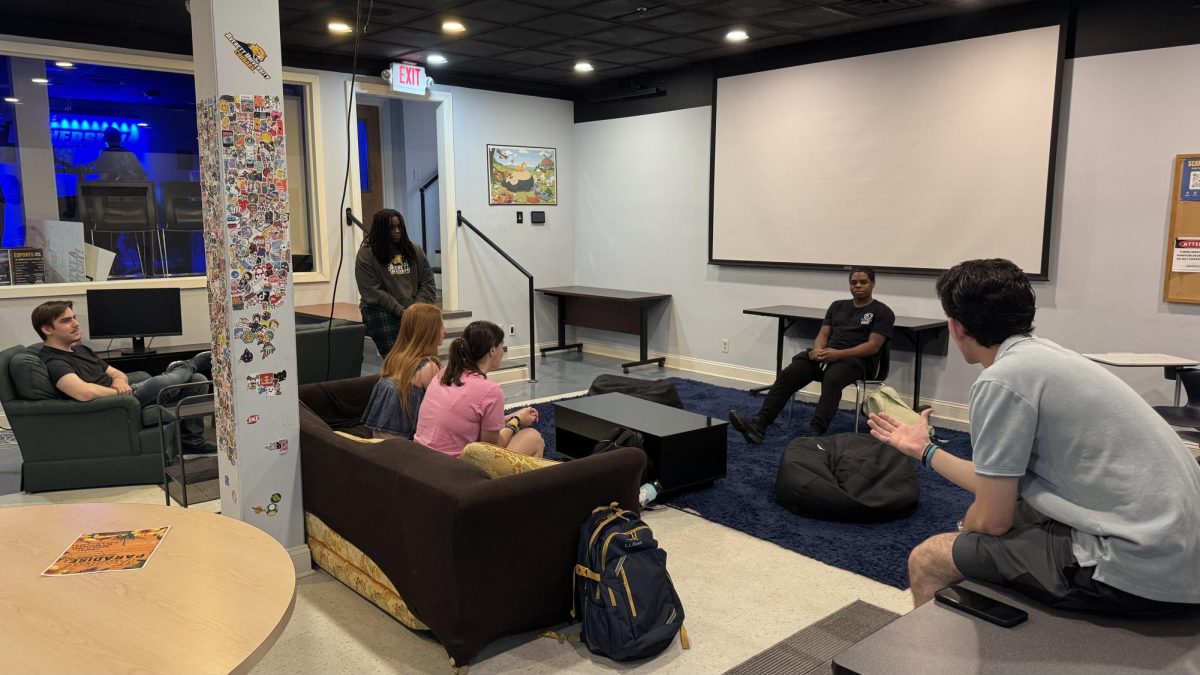Published Faculty: Dr. Charles Wuest and His Research
Dr. Charles Wuest, Associate English Professor
September 10, 2022
While Averett is already well-known for its excellence, some faculty have gone above and beyond in their craft and have published academic research.
Dr. Charles Wuest, a seven-year Averett University associate English professor and long-time researcher is one among many who turned their passion into words. Wuest’s fascination with Geoffrey Chaucer led him to create a class that is available in varied spring semesters, the next one is scheduled for 2024.
“We discuss some of the historical events that affected Chaucer’s life, such as the plague, the status of various people and the status of their jobs (Chaucer lived in an oppressive, patriarchal, and hierarchical society), and the kinds of reading and poetry that influenced Chaucer. We also spend a lot of time in the course reading and discussing The Canterbury Tales, which is Chaucer’s most famous literary work,” Wuest said.
According to Wuest, his fascination with the author stems from the feeling behind reading Chaucer’s work. He explained that Chaucer has always felt modern and extremely medieval to him, a sense that may have been mirrored by earlier poets and writers, such as Shakespeare, and his learning experience through Chaucer’s works.
“I enjoy the experience of reading an author who is at once familiar and strange, and every time that I re-read something by Chaucer I always discover something that I had not realized before,” Wuest said.
Wuest is not alone in his research of the author and knows quite a few other publishers from medieval literature conferences he attends, “I also attended a National Endowment for the Humanities seminar a few summers ago that was focused on Chaucer, and now I am close friends with several of those folks.”
In his research, Wuest has six academic pieces that are either published or are contracted to publish soon. One article he wrote on Chaucer is appearing next year in a book with various writers’ essays called MLA Approaches to Teaching Arthurian Literature, 2nd edition. Another article, “Chaucer’s Enigmatic ‘Thing’ in the Parliament of Fowles,” appears in the journal Studies in Philology that can be found in the library’s database.
“‘Chaucer’s Enigmatic ‘Thing’ in the Parliament of Fowles’ (Studies in Philology) argues that Chaucer uses the word “thing” at crucial moments in his poem (‘Fowles’ means birds, and his poem is a charming one about dreams and talking birds and Valentine’s Day).” Wuest said. “For Chaucer in that poem, ‘thing’ emphasizes the role of desire in making poetry.”
In the length of time it takes to publish or write an article, Wuest explained that it “…varies quite a bit” and in some cases, it has taken him a few years to complete an essay, while in other cases it takes him only a few months. Additionally, he occasionally presents early versions of an article at an academic conference so that he can receive suggestions and criticism from the audience to aid in writing a more effective piece.
“A lot of times, an article will start as a tiny idea–usually one I jot down in pencil in a notebook or in the margins of a book that I’m reading. Then I will occasionally come back to the idea so that it can develop over time, as I think more about it.”
For more information on his course, Chaucer and His World, contact Dr. Wuest via his faculty email: [email protected] or keep an eye out while enrolling for classes in the near future.
















